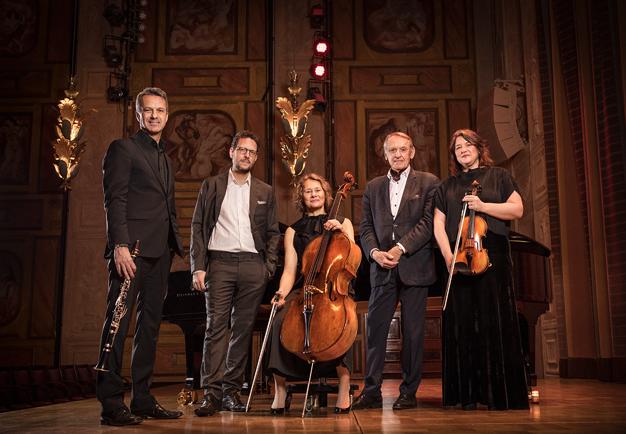
Photo: Nadja Sjöström
Quartet for the End of Time
Poetic and hopeful med philharmonic musicians. Jan Eliasson reads from Dag Hammarskjöld’s classic Markings.
This concert alternates music with readings. Jan Eliasson, a diplomat and former President of the UN General Assembly, reads from and reflects on Markings by Dag Hammarskjöld. The readings are given between movements in both pieces in the programme.
Dag Hammarskjöld was Secretary General of the UN from 1953 until his death in 1961, in what was believed to be an airplane accident. At his home in New York, a manuscript was discovered entitled Markings. Hammarskjöld called these notes “a book of reflections on my negotiations with myself and with God.” He posthumously won the Nobel Peace Prize in 1961.
First we hear music by Fanny Mendelssohn-Hensel. The passionate Piano Trio from 1847 was a birthday present for her sister. Fanny died a few months later of a stroke and the piece was first published several years later. The music was composed at a time of great political and financial unrest in Europe, with revolutions following in 1848.
When World War II broke out, French composer Olivier Messiaen was drafted into the army as a nurse, but was captured in 1940 by German troops and held in a prisoner-of-war camp. Some of his fellow captives were musicians: a clarinettist, a violinist and a cellist. Messiaen played piano. He composed Quatuor pour la fin du temps, Quartet for the End of Time. It had its world premiere in the camp, where it was performed for his deeply moved fellow captives – and the camp guards. This music is spiritual, incredibly poetic and fateful, yet filled with hope.
-
The music
Approximate times -
Fanny Mendelssohn-Hensel Piano Trio in d minor26 min
-
Intermission25 min
-
Olivier Messiaen Quartet for the End of Time52 min
-
Participants
- Emma Agnas de Frumerie violin
- Kajsa William-Olsson cello
- Johan Fransén clarinet
- Peter Friis Johansson piano
- Jan Eliasson reciter
